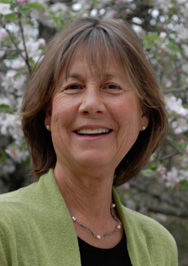When my French husband and I arrived in Sonoma County 38 years ago, it was unimaginable that our humble Sonoma State University would become the nucleus for the California wine business and global world of wine.
Now, with our region boasting 450 wineries and a worldwide demand for knowledgeable, experienced people capable of running all aspects of wineries, our once seat-of-the-pants approach to business has taken a profound turn.
The grand opening of the Wine Spectator Learning Center, the new home of the Wine Business Institute (WBI) at Sonoma State University, represents two decades of collaboration among public and private individuals and organizations.
This unique partnership between the School of Business and Economics at SSU and the global wine industry was originally conceived with Gary Heck, president of F. Korbel and Brothers. It brings together business and community stakeholders to facilitate greater innovation, more advanced public policies and better-trained leaders for the constantly evolving wine business.
Congressman Mike Thompson underscored, “the importance of students conducting research and studying public policy, as it will greatly pay off in spades in assisting our lawmakers.” He reminded us that the wine business fuels the national economy with $180 billion a year.
“Innovation is sparked in the classroom where students and instructors share ideas and best practices to remain and become more competitive,” said executive director of the Wine Business Institute Ray Johnson. “Often we think of innovation as an advancement in technology or a new product. But innovation is also taking what you learn in one business and fashioning it into a new practice. This is what happens through learning and sharing in our classrooms.”
Many WBI faculty and industry instructors hold board positions on regional and trade associations, working directly with wine industry partners on community challenges. And, faculty research studies are published each year to inform public policy on issues of fair business practices for consumers, regional economic development, and sustainability.
John Stayton, director of graduate and executive business programs at SSU, is a former sustainability consultant and founder of the Green MBA at Dominican College. He collaborates with industry leaders such as John Garn of Viewcraft, an expert on environmental solutions, and Julien Gervreau, director of sustainability for Jackson Family Wines, who share discoveries and advancements of their work with students.
Tim Wallace is a Harvard Business School graduate and Executive in Residence for WBI. He brings real-life experience from his decades at the helm of his family business, Benziger Winery.
Issues of sustainability are broad and pressing. Education and research are more important now than ever. WBI leaders appreciate that, for this industry rooted in agriculture, sustainability means leaving the land in better shape for the next generation, not simply looking at business from a monetary perspective.
WBI seeks to provide professionals the tools and strategies necessary to build a business case for adopting environmental and social equity practices.
“Many of our students are working with their families on succession planning to preserve their family businesses over the years and during the course of generations. Graduate programs provide students and their families tools to plan that succession strategically,” said Johnson.
One such student is Drew Damskey, a member of the first Sonoma Executive MBA in Wine Business program. Damskey was recently honored as one of San Francisco Chronicle’s 2017 class of Winemakers to Watch. With his family, Damskey makes Palmeri wines.
“It speaks volumes that pillars of the wine industry, such as Marvin and Hazel Shanken, Gary Heck and many others have invested so much. The goal is not simply to grow the California wine business, but to set the stage, making for a smarter, more dynamic industry. A large part of my success is rooted in the SSU EMBA program,” said Damskey.
SSU President Judy Sakaki believes the wine business programs exemplify the university’s commitment to meeting local workforce needs. “We have become known nationally and internationally because of the caliber and uniqueness of our academic programs.”
In welcoming guests, Sakaki promised, “Knowledge will be transmitted here. New knowledge will be created here. Partnerships will be formed here. Community members will gather here. And, lives will be enriched and changed here.”
Last week’s Wine Spectator Learning Center grand opening was indeed an historic day in the world of wine. The generosity of Marvin Shanken and the Wine Spectator Scholarship Foundation with an initial $3 million donation begins a new chapter for local and international education of wine.
Marie Gewirtz represents wine and food clients with marketing and communications in Sonoma County and throughout the world. She can be reached at wi*******@so********.com.








